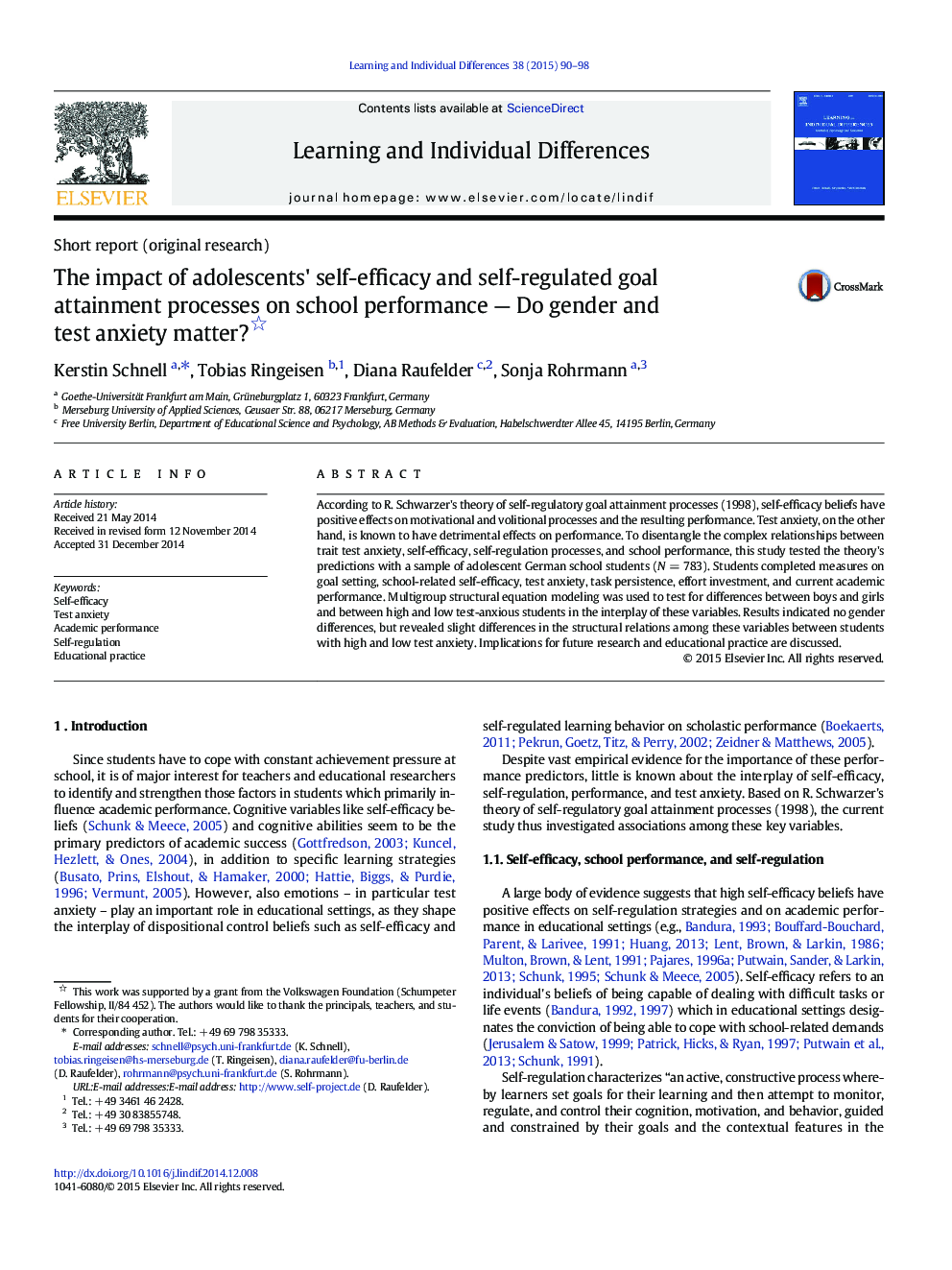| Article ID | Journal | Published Year | Pages | File Type |
|---|---|---|---|---|
| 364627 | Learning and Individual Differences | 2015 | 9 Pages |
•We examined the complex relationships between trait test anxiety, self-efficacy, self-regulation processes and school performance.•The interplay of these variables was tested with multigroup structural equation modeling.•Results indicated no gender differences, but slight differences between high and low test-anxious students.
According to R. Schwarzer's theory of self-regulatory goal attainment processes (1998), self-efficacy beliefs have positive effects on motivational and volitional processes and the resulting performance. Test anxiety, on the other hand, is known to have detrimental effects on performance. To disentangle the complex relationships between trait test anxiety, self-efficacy, self-regulation processes, and school performance, this study tested the theory's predictions with a sample of adolescent German school students (N = 783). Students completed measures on goal setting, school-related self-efficacy, test anxiety, task persistence, effort investment, and current academic performance. Multigroup structural equation modeling was used to test for differences between boys and girls and between high and low test-anxious students in the interplay of these variables. Results indicated no gender differences, but revealed slight differences in the structural relations among these variables between students with high and low test anxiety. Implications for future research and educational practice are discussed.
